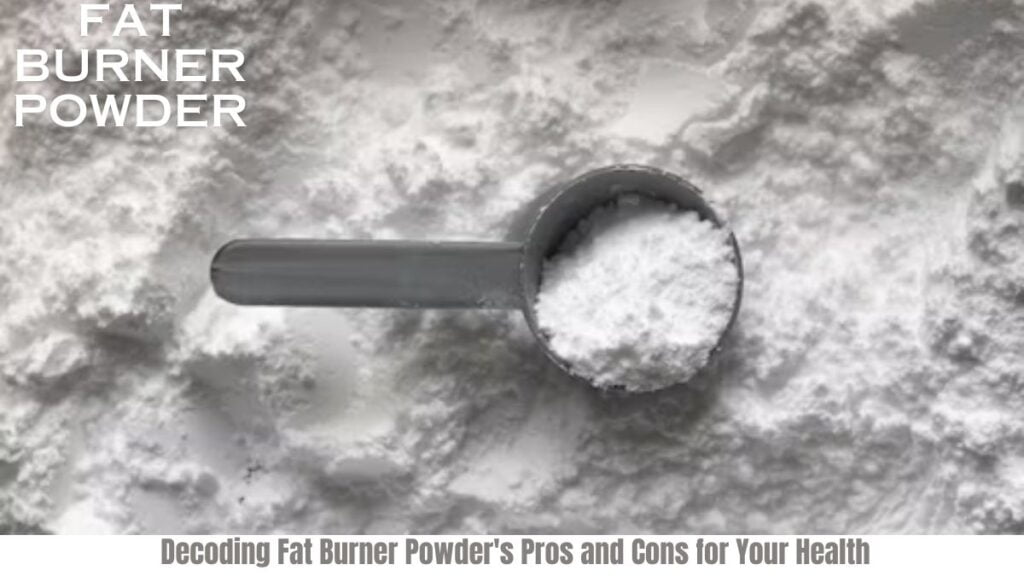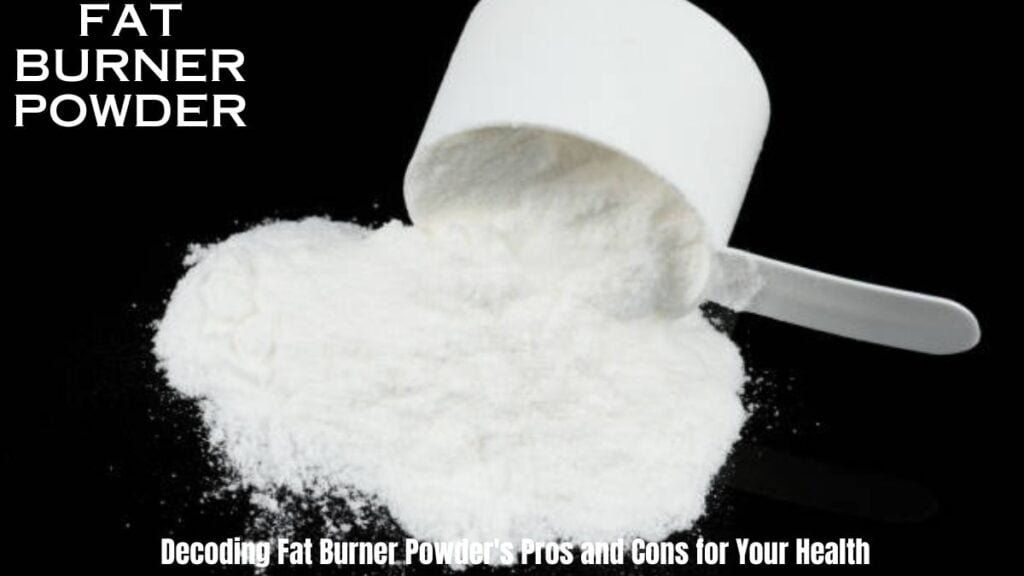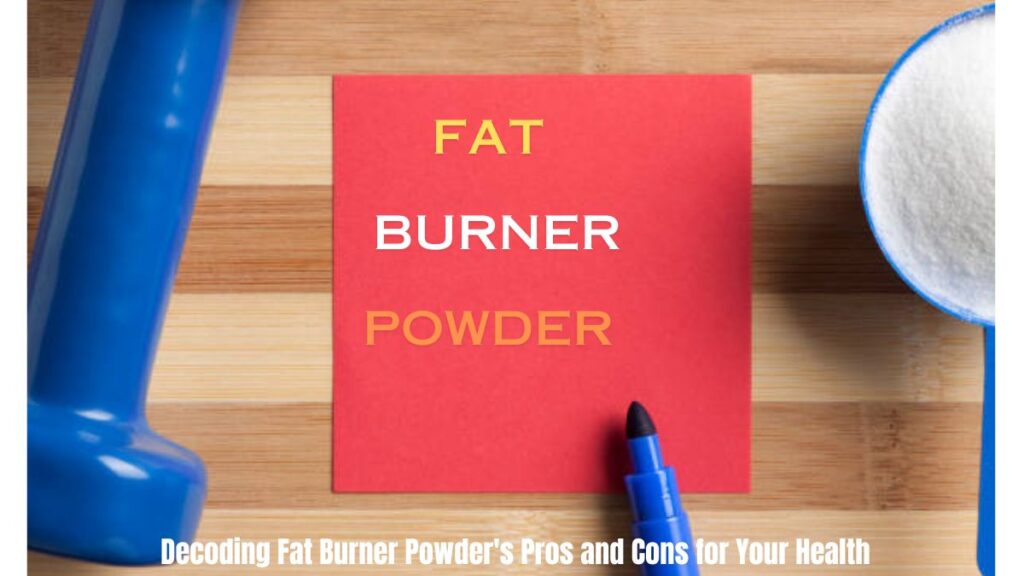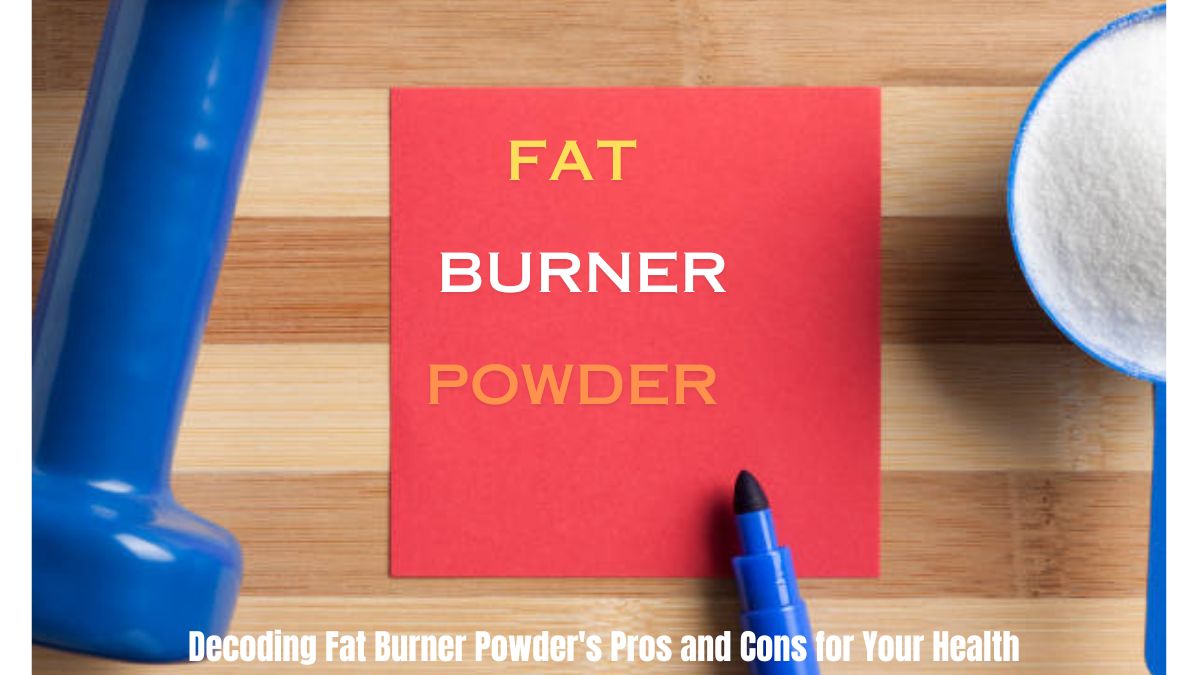Introduction: –

Unveiling the Truth: Decoding Fat Burner Powder’s Pros and Cons for Your Health
In the quest for weight loss and fitness, fat burner powders have emerged as a popular supplement choice. Promising to enhance metabolism and promote fat loss, these powders often attract attention from individuals striving to achieve their health goals. However, like any supplement, understanding the potential benefits and drawbacks is crucial for informed decision-making.Let’s dive deeper into fat burner powder through a few questions and uncover the pros and cons for your health.
Can fat burner powder’s actually lead to sustainable weight loss, or do they primarily offer short-term results?
The efficacy of fat burner powders in facilitating sustainable weight loss remains a subject of debate among health professionals and researchers. While fat burner powders may produce short-term weight loss results for some individuals, their ability to promote long-term, sustainable weight loss is less clear. Several factors contribute to this uncertainty:

- Short-Term Weight Loss: Many fat burner powders contain ingredients such as caffeine and thermogenic compounds that can increase metabolism, suppress appetite, and enhance fat oxidation. These effects may lead to initial weight loss in the short term, primarily through water loss and temporary reduction in calorie intake.
- Limited Evidence: Despite the widespread use of fat burner powders, scientific evidence supporting their long-term efficacy for sustainable weight loss is lacking. Clinical studies on fat burner supplements often have methodological limitations, and their findings may not be applicable to the general population.
- Potential for Dependency: Regular use of fat burner powders, particularly those containing stimulants like caffeine, may lead to dependency and tolerance over time. This can diminish the effectiveness of the supplement and make it challenging to maintain weight loss without continued use.
- Lack of Lifestyle Changes: Fat burner powders are often marketed as a quick-fix solution for weight loss, but they cannot replace healthy eating habits and regular exercise. Sustainable weight loss requires a comprehensive approach that includes dietary modifications, increased physical activity, and behavior change.
- Potential Side Effects: Some individuals may experience adverse effects from fat burner powders, such as increased heart rate, jitteriness, digestive issues, and insomnia. These side effects can negatively impact overall well-being and hinder long-term adherence to a weight loss regimen.
- Individual Variability: The effectiveness of fat burner powders can vary widely among individuals due to differences in metabolism, genetics, lifestyle factors, and pre-existing health conditions. What works for one person may not produce the same results for another.
while fat burner powders may offer short-term weight loss benefits for some individuals, their long-term efficacy for sustainable weight loss is uncertain. Healthy lifestyle habits, including balanced nutrition and regular exercise, remain the cornerstone of successful and lasting weight management. Before considering fat burner powders or any weight loss supplement, it’s essential to consult with a healthcare professional to assess potential risks and determine the most appropriate approach for achieving your health goals.
Can fat burner powders interact with medications or pre-existing health conditions, potentially exacerbating certain health issues?
Yes, fat burner powders can potentially interact with medications and exacerbate pre-existing health conditions, highlighting the importance of caution and consulting with a healthcare professional before use. Here are some considerations regarding potential interactions:

- Medication Interactions: Fat burner powders, especially those containing stimulants like caffeine, may interact with various medications, including:
- Blood pressure medications: Stimulants in fat burner powders can increase heart rate and blood pressure, which may interfere with the effects of medications used to manage hypertension.
- Antidepressants: Certain ingredients in fat burner powders can have stimulant effects that may interact with antidepressant medications, potentially leading to increased side effects such as jitteriness and anxiety.
- Blood thinners: Some fat burner ingredients, such as green tea extract and gingko biloba, may have blood-thinning properties, which could interact with anticoagulant medications and increase the risk of bleeding.
- Thyroid medications: Stimulants in fat burner powders may affect thyroid function or interfere with the absorption of thyroid medications, potentially leading to thyroid hormone imbalances.
- Pre-existing Health Conditions: Individuals with certain health conditions should exercise caution when considering fat burner powders, as they may exacerbate symptoms or interfere with treatment. For example:
- Cardiovascular conditions: Stimulants in fat burner powders can increase heart rate and blood pressure, potentially worsening symptoms in individuals with heart disease, arrhythmias, or other cardiovascular conditions.
- Anxiety disorders: Ingredients like caffeine and synephrine found in fat burner powders can exacerbate anxiety symptoms and may trigger panic attacks in susceptible individuals.
- Diabetes: Some fat burner powders contain ingredients that can affect blood sugar levels, potentially complicating diabetes management and increasing the risk of hypoglycemia or hyperglycemia.
- Liver or kidney disease: Certain fat burner ingredients may strain liver or kidney function, particularly when used in high doses or for prolonged periods, which could worsen existing liver or kidney conditions.
- Individual Sensitivity: Even in individuals without pre-existing health conditions or medication use, fat burner powders can cause adverse effects such as insomnia, jitteriness, digestive issues, and increased heart rate. Sensitivity to these effects can vary widely among individuals, and some may be more prone to experiencing negative reactions.
Given these potential interactions and risks, it’s crucial for individuals considering fat burner powders to consult with a healthcare professional, especially if they are taking medications or have underlying health conditions. A healthcare provider can provide personalized guidance based on an individual’s medical history, medication regimen, and specific health needs, helping to minimize potential risks and ensure safe and effective use of fat burner powders.
Are there differences in the efficacy and safety of fat burner powders depending on the specific brands or formulations?
Research on the long-term effects of fat burner powder usage on health outcomes is limited and inconclusive. While some studies have investigated the short-term effects of individual ingredients commonly found in fat burner powders, there is a lack of comprehensive, long-term research specifically focusing on fat burner powder products as a whole. However, several factors should be considered when evaluating the potential long-term effects:

- Ingredient Composition: The efficacy and safety of fat burner powders can vary depending on the specific ingredients and their dosages. Some ingredients, such as caffeine and green tea extract, have been more extensively studied and may have relatively well-established safety profiles in moderation. However, other ingredients, particularly proprietary blends or exotic substances, may lack sufficient scientific evidence regarding their long-term effects.
- Stimulant Content: Fat burner powders often contain stimulants like caffeine, which can have both short-term and long-term effects on health outcomes. Chronic high intake of stimulants may lead to tolerance, dependence, and potential adverse effects such as increased heart rate, anxiety, and sleep disturbances. Individuals with underlying cardiovascular conditions or sensitivity to stimulants may be at higher risk for adverse effects.
- Regulatory Oversight: The supplement industry is not as tightly regulated as pharmaceuticals, leading to concerns about the safety, purity, and efficacy of some fat burner powder products. Variability in manufacturing standards and quality control practices among different brands and formulations may impact the consistency and safety of fat burner powders.
- Individual Variability: The long-term effects of fat burner powder usage can vary among individuals depending on factors such as genetics, overall health status, lifestyle habits, and concurrent medication use. Some individuals may experience more pronounced benefits or adverse effects from fat burner powders compared to others.
- Potential Risks: While fat burner powders may offer short-term weight loss benefits for some individuals, there are potential risks associated with their long-term use, including nutrient deficiencies, metabolic adaptations, and dependence on supplementation rather than sustainable lifestyle changes for weight management.
In summary, more research is needed to better understand the long-term effects of fat burner powder usage on health outcomes. Individuals considering the use of fat burner powders should carefully evaluate the available evidence, consult with a healthcare professional, and prioritize sustainable lifestyle changes for weight management and overall health.
In conclusion,
Fat burner powders can offer both benefits and drawbacks for your health and weight loss journey. Before incorporating them into your routine, it’s essential to weigh the potential pros and cons, consider your individual health status and goals, and consult with a healthcare provider if necessary. Remember, sustainable weight loss and overall health are achieved through a balanced approach that includes nutritious eating habits, regular physical activity, and mindful supplementation when appropriate.






